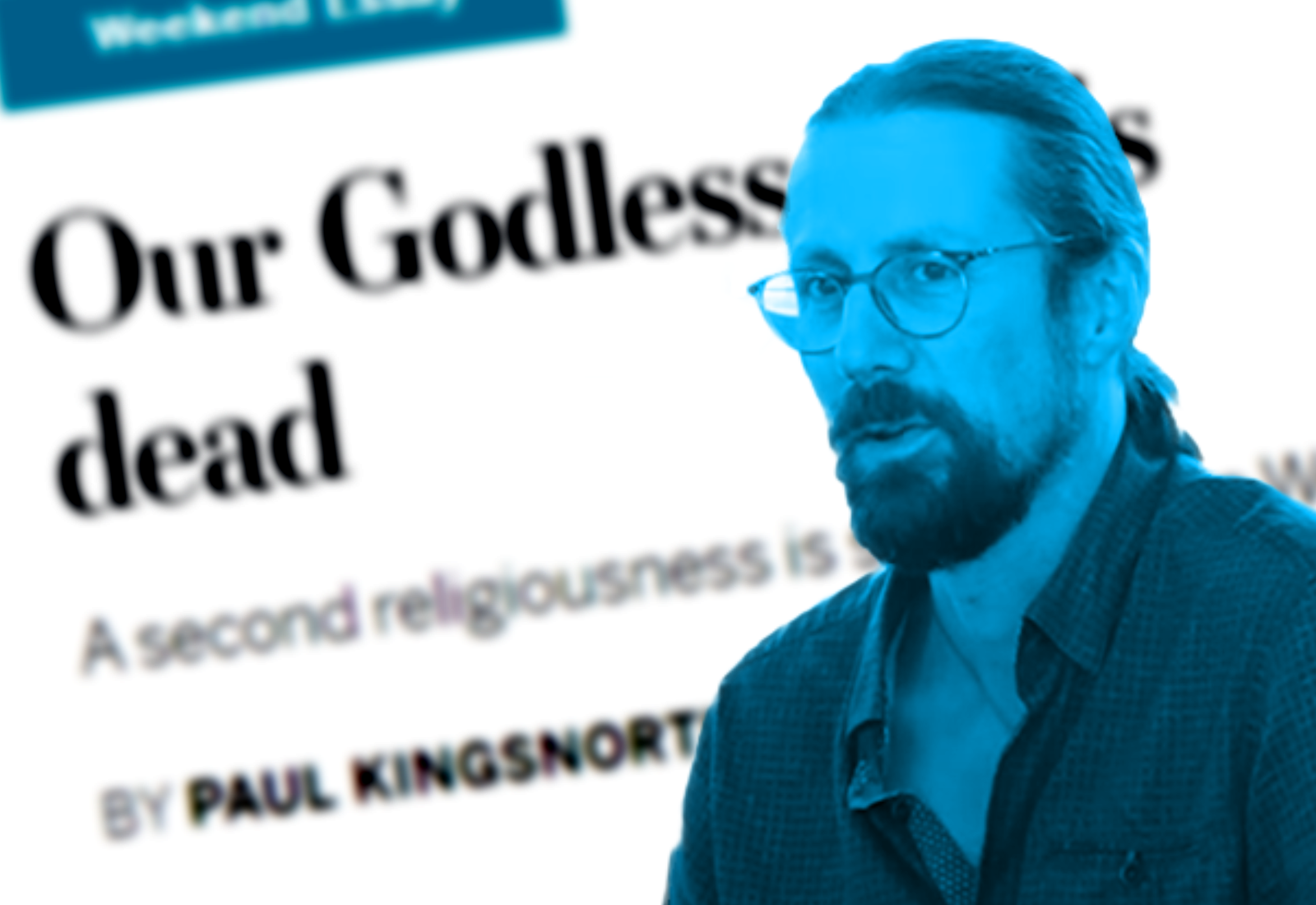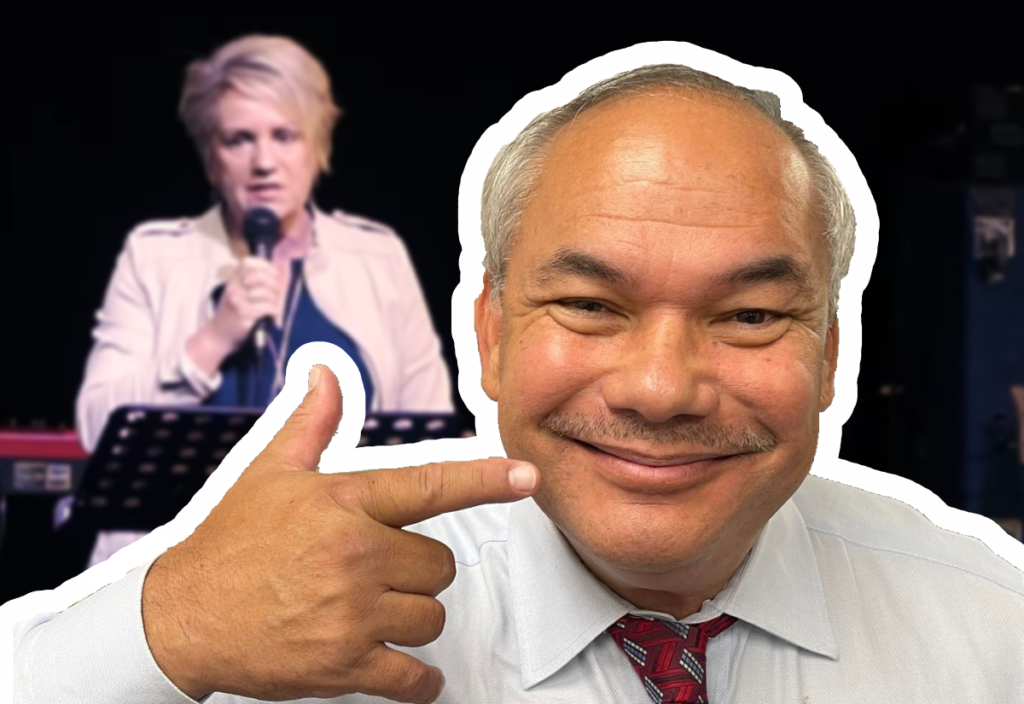On Christmas Day, an essay appeared in the online magazine UnHerd under the title ‘Our Godless era is dead: A second religiousness is sweeping the West’. The author was Paul Kingsnorth, an interesting individual whose personal journey has been colourful. He relates that he has converted to the Romanian Eastern Orthodox Church and that he believes a “new religiousness is sweeping the West”. I felt sufficiently provoked by his remarks to pen this response.
After a lively decade-and-a-half as a journalist, Kingsnorth gave up journalism in 2009 to co-found something called the Dark Mountain Project, which describes itself as “a network of writers, artists, and thinkers who have stopped believing the stories our civilisation tells itself.” They decided, it seems, to make up a story of their own.
Now, people make up stories all the time. The best of them are lasting and luminous. Many of them are pulp fiction or altogether incoherent and unpublishable. Kingsnorth’s is on the grand scale.
Looking back from his Dark Mountain, he reflects that he grew up amid:
“…the fading Christian heritage of England, the liberalism which had replaced it, an Enlightenment-era faith in science, reason and “progress”, and the much newer afterglow of the Sixties sexual revolution.”
As you will intuit, he became disillusioned with all this. He thinks everything has been going dismally downhill since the Enlightenment and that only religion – of a very particular kind – will save us.
He now believes: that Oswald Spengler and other prophets of doom were correct in diagnosing the “decline of the West”; that Nietzsche was wrong about “the death of God”; that ‘God’ came down to Earth in the form of Jesus and “we should assume that he knew what he was doing”; that we all need to pray and withdraw from the world if we wish to transform it; and that we need a regular cycle of Christian feast days and fasts to make our lives as meaningful as – he now believes – they once were.
To his credit, he cautions against militant or organised religion. As he explains, his is a faith of the “Desert Fathers” kind, though it seems he prefers the green coastlands of western Ireland to the arid landscapes of the Egyptian Sahara and a comfortable, computer-equipped and insulated cottage to the pillar of Simeon Stylites, or other eremites.
He specifically rejects militant religion, whether crusading Christianity or jihadist Islam. That’s a relief. He spurns Ayaan Hirsi Ali’s call for Christianity-inspired “civilisational war”. That, too, is a relief.
Like many a mystic before him – especially one who could find an audience for his preaching – he bemoans the customs and social decadence of his time (as he sees them). And, to short circuit all manner of retorts, he declares:
“The biggest lie my culture told me was … that humans could reason their way to freedom.”
Take a moment to absorb the implications of that. It’s hardly an original assertion, but it is profoundly pernicious – and irrational.
Kingsnorth, we might casually comment, is cordially welcome to his not-so-ascetic Irish cottage and his Romanian rituals, his prayers to ‘God’ and his idiosyncratic faith on his Dark Mountain. But he is certainly not welcome to stand by his notion that the claims of reason and freedom being linked are “the biggest lie my culture told me”. There we cross swords.
To begin with, he makes this statement in the middle of an essay which is supposed to persuade us that he has reached his new faith for good reasons. Why else would he write such an essay, setting out his case?
If he were only communing with the true believers, he would, surely, just announce how great ‘God’ is and how beautiful His ways. He might quote Psalms and evoke passages from Isaiah or the Gospels or the Book of Revelation. But he would not reason with his readers. For him to do so surely means he is participating in what he has described as a great lie.
The oldest insight in the philosophical canon is that if the claims of religion cannot withstand the critical scrutiny of reason, they are without secure foundation. That doesn’t alter the observable and much-studied reality that countless human beings, in all cultures, have harboured religious beliefs of many kinds and participated in religious practices.
Rational tolerance has been based, in both the classical and the modern worlds, on the simple maxim that human religious beliefs, being diverse, mutually incompatible and stubbornly held, cannot be suppressed, but must be constrained under civil law.
If, as Kingsnorth asserts, a “new religiousness” were sweeping the West, we must require of him and those who share his opinion that they produce the compelling evidence for this or admit that the claim is one based on wishful thinking and faith rather than reason. If, conversely, he were to come forward with compelling evidence, we would have to respond that he appears to have both empirical evidence and reason behind his claim. Yet that ought to disconcert him, given his denunciation of the role of reason in setting us free.
Let us suppose, however, that there was unimpeachable empirical evidence that a new religious fervour was sweeping the West and that it was inspired by disillusionment with science and reason. Would that be grounds for joining the new believers in their faith? If so, what particular version of it and to what end?
Reason, one suggests, would again have to be used. But then we’d be right back where Kingsnorth insists we shouldn’t go.
Is there any common ground with him? Perhaps in this: he says that only a rarefied, quietist Christian faith is any good and that it should seek to transform the world by withdrawing from it. A good rationalist might say: Why not simply embrace critical reason, avoid excess, enjoy science and one’s cottage, and seek to do rational good in a world always in need of sane counsel?
If you wish to republish this original article, please attribute to Rationale. Click here to find out more about republishing under Creative Commons.
Image: Screengrab from ‘Seen & Unseen’ (YouTube); Screengrab from UnHerd.














